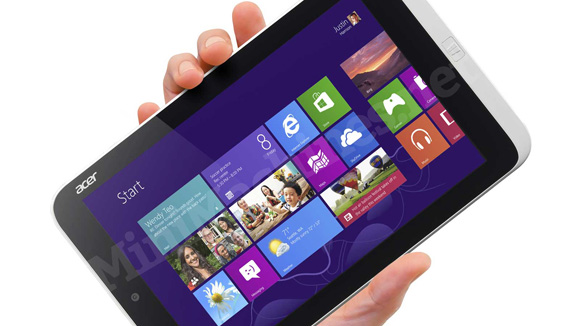Smaller, cheaper Asus and Acer tablets could fill the Surface Mini void
W8 tablets could compete with iPad Mini, Google Nexus 7

Sign up for breaking news, reviews, opinion, top tech deals, and more.
You are now subscribed
Your newsletter sign-up was successful
Whether the rumored Microsoft Surface Mini device is on its way is still unclear, but Asus is determined to release smaller and cheaper Windows 8 tablets starting within the next few months.
The Taiwanese manufacturer's CEO Jerry Shen said that W8 tablets are likely to fall below $300 (UK£194, AU$295), according to the Wall Street Journal.
This move, expected to happen sometime this year, would allow tablets running Microsoft's struggling operating system to compete with Apple's iPad Mini and Google's Nexus 7.
"We're very optimistic about sales for Windows 8 tablets this year," said Shen in a follow-up comment to the newspaper.
Falling prices, shrinking screens
The cheaper price of these tablets would also mean reduced screen sizes which, surprisingly, would be a first for the Windows 8 operating system.
The current Asus VivoTab, for example, is a 10-inch device, and that's among the smallest of the W8 tablet screen sizes so far.
Although there are two versions of the VivoTab, one that runs Windows 8 and another ARM-powered Windows RT model, it's unclear whether or not a smaller Asus tablet would be limited to Windows RT.
Sign up for breaking news, reviews, opinion, top tech deals, and more.
From Asus to Acer
Asus may not be the only Taiwan-based tablet manufacturer looking to get into the mini tablet market.
A leaked set of product images for an Acer tablet fit this description on Amazon.
The 8.1-inch device, able to be gripped single-handedly, had enough room to pack a dual-core 1.8GHz Intel Atom processor, 2GB of RAM, and a 1280 x 800 resolution display, according to the leaked specs.
Listed as the Acer W3-810, this tablet was priced at $379.99 (UK£246, AU$374) on the quickly pulled Amazon product page.
With manufacturers like Asus and Acer willing to try out new sizes, from really big to small, they may be able to peak the interest of tablet consumers who are flocking to Apple and Samsung.
